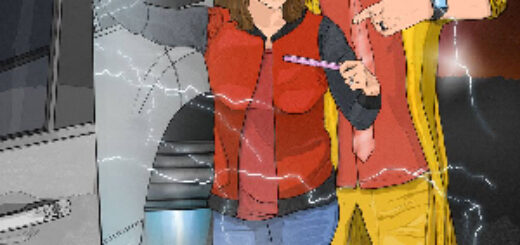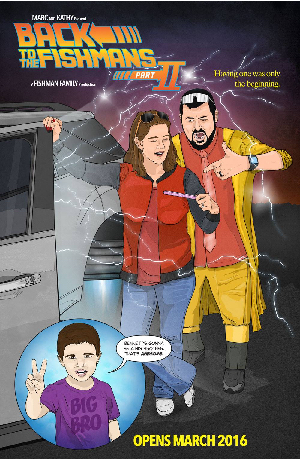SHUT UP, SIT DOWN, GET OUT
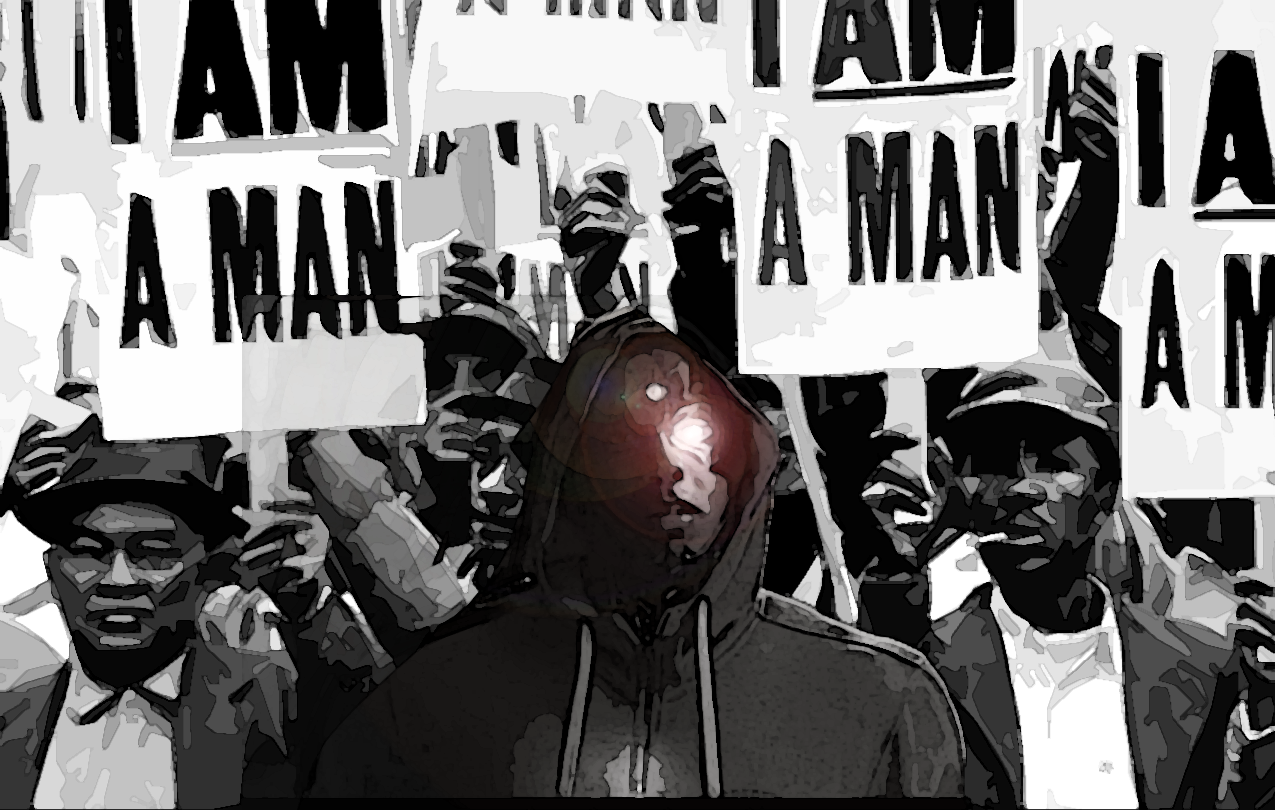
Ray Fisher is out at Warner Bros.
From what I take from his writings, he loved playing Cyborg, and it showed. But Ray called attention to what he claimed was at times discriminatory treatment on the Justice League sets.
From the start, this was no-win for Ray. He knew the risk and still went on. He’s taken a lot of, ” let it go, don’t rock the boat, shut up, sit down.” The comments about how he’s going to lose millions because of his big mouth are partially harsh. Those remarks come with attacks on his intelligence and race.
The “dumb darkie” stereotype is always a reason when a Black person draws attention to an injustice that may stop all that money coming in.
Orlando Jones knew the risk when he shined a light on an American Gods director. He was “rocking the boat, and better stop” was a typical post across all social networks.
Ray Fisher knew the risk, and yeah, it may be a dumb move to put at risk your seven-figure income for a purpose for some— but what Ray and Orlando did wasn’t stupid, dumb, or crazy.
Yeah, the “crazy” tag is likewise standard when Black people put their bank on the line. The perfect example is Dave Chappelle. When he walked away from $50 million, he was called crazy and stupid.
Dave, Ray, and Orlando are only doing what the great men and women who died to give us what freedoms Black people have today did.
They are calling attention to the discriminatory behavior of those in power. They did so at significant risk to their careers and bank accounts.
The entertainment industry produces thousands of underdog stories annually. The business is built on good beating evil. Reading some of the negative comments, perhaps there is a market we are missing:
CYBORG: BATMAN!! SUPERMAN CALLED ME A NIG….!
BATMAN: SHUT UP & SIT DOWN!
CYBORG: He called you a Democrat.
BATMAN: OH, HELL, NO! WHERE’S MY KRYPTONITE!?
I believe Ray; I know a guy in a similar albeit lesser-known situation with a comic company.
Let’s do some conjecture.
Assume there is no claim of wrongdoing by Ray; he hasn’t said anything to anyone. But two WB employees claimed Ray was loud and rowdy and called the company racist during the Emmy Awards. So bad was the outburst, the two WB representatives signed affidavits swearing to this explosion of racist hate from the actor.
If that happened, he SHOULD lose the Cyborg gig. WB would have every right to let him go. Having that kind of energy around is toxic and will most certainly lead to a bigger disaster.
Let’s change it up a bit.
Suppose Ray created Cyborg and wasn’t a relatively new actor but a well-established actor and producer. Oh heck, let us say Ray also founded the Actors Studio and the WB made millions off his students who honed their skills under Ray.
Hey, let’s go ALL OUT, shall we?
For shits and giggles, let’s imagine Ray created Cyborg, was a well-established actor and producer who founded the Actors Studio and the WB made millions off his students.
Let’s pretend he’s so accomplished his independent productions are in markets not even the WB or any other major studio is in, leading to an honor no one else in Hollywood has ever achieved.
A Nobel Peace Prize, plus his name on a school, and he rescues kittens!
Should Ray be still be fired if he accomplished all of the above?
Yes.
Hating a giant corporation is the right of every American. It is not a “do what you want” card. Being loud at one of the industry’s quintessential events, calling prominent studio racist— yes, he should be terminated and banned from working with said company and their related companies and subsidiaries. Whatever he achieved in life, no matter how much money he may have, offensive conduct has consequences.
Now, let’s say Ray had IRON CLAD proof he was 2000 miles away. To save themselves from a PR nightmare, WB would move quickly to issue an apology, hire him to be Cyborg again, and the two liars would be fired, perhaps even arrested.
Now imagine if WB knew the truth but BANNED HIM ANYWAY.
That’s what happened to Ray.
He raised an issue that everyone is aware of now. Joss Whedon was fired after an investigation, and people will now tread lightly.
But why punish Ray?
There’s no way Whedon, who made Hollywood MILLIONS, was let go unless something dreadful happened. Why was Ray punished for bringing light to dark deeds?
It doesn’t matter if Ray was an entry-level actor (he’s not) or had won the Nobel Peace Prize, founded the Actors Studio, etc.— he was wronged, and at significant risk to himself, he fought to do the right thing.
The right thing cost him millions, as it did Joss Whedon.
Some think both careers are over. I hope both can return to their craft, but I’m certain Joss will make a comeback, absolutely. Not so sure Ray will, and you know why.
Hollywood takes their power to treat people like shit seriously. As evidenced by the following true story:
A major studio is aware of a director who intentionally set out to destroy a actor’s career. A career that mimics the fictional one created above, no Nobel Peace Prize but a similar resume.
Would you care that someone with power decided your fate as if you were Eddie Murphy in Trading Places?
Is there a statute of limitations on evil? Would your advice be to let the devil have his due? Would your opinion be ‘move on?’
The director let criminal treatment go, and for years he took the hit. His peers offer no help because they still have a relationship with the studio—their advice; move on, shut up, sit down. He tries, then the studio calls, they want to make his dream project!
They make it without him after giving him false hope.
He’s got a damning paper trail proving that’s his work, but they ignore him.
How DARE he call them out on their theft!
What should he do?
What would you do?

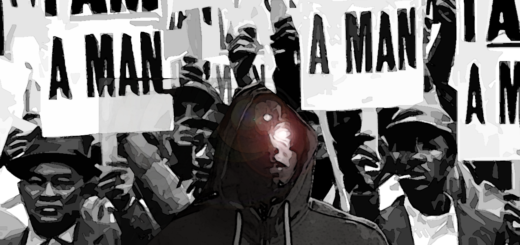
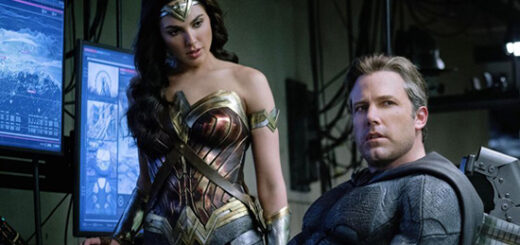
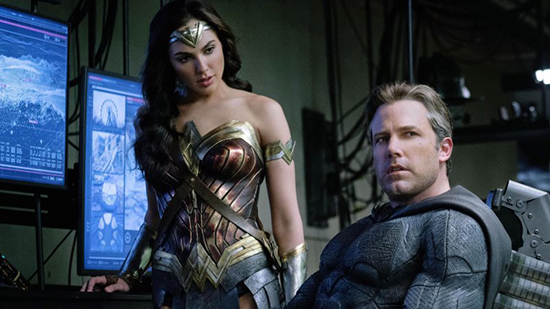
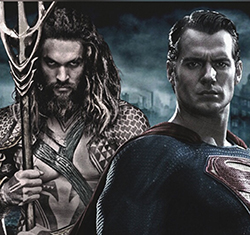 Somewhere around the mid-point of one of the chaotic action sequences in Justice League, a thought echoed in my head. “Avengers was better. I know it was. But why?” Put a pin in that.
Somewhere around the mid-point of one of the chaotic action sequences in Justice League, a thought echoed in my head. “Avengers was better. I know it was. But why?” Put a pin in that.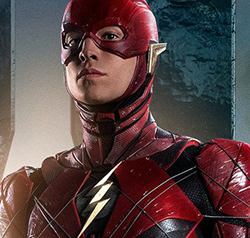 When I noted the efficient assemblage of the titular superteam, it comes couched with a cacophony of caveats. Our introduction to Barry Allen / The Flash seems to speed through his origin in a manner sans-irony given his power set. While he’d been on the fringes of Batman v Superman, we’ve been granted no real anchor to his character by the time he’s donning his car-wreck of a costume. It’s all flashes of awkward Big Bang Theory Sheldonisms smashed on top of tearful angst over the incarceration of Henry Allen. Late in the film, he shares a moment (one of the better exchanges, I should add) with Victor Stone / Cyborg, declaring they are the accidents. But because it comes so late – during the predictable recuperation of the nearly-defeated team scene (that all superhero team movies need, I guess) – it just feels like a tacked-on bon mot, instead of a necessary moment of respite.
When I noted the efficient assemblage of the titular superteam, it comes couched with a cacophony of caveats. Our introduction to Barry Allen / The Flash seems to speed through his origin in a manner sans-irony given his power set. While he’d been on the fringes of Batman v Superman, we’ve been granted no real anchor to his character by the time he’s donning his car-wreck of a costume. It’s all flashes of awkward Big Bang Theory Sheldonisms smashed on top of tearful angst over the incarceration of Henry Allen. Late in the film, he shares a moment (one of the better exchanges, I should add) with Victor Stone / Cyborg, declaring they are the accidents. But because it comes so late – during the predictable recuperation of the nearly-defeated team scene (that all superhero team movies need, I guess) – it just feels like a tacked-on bon mot, instead of a necessary moment of respite.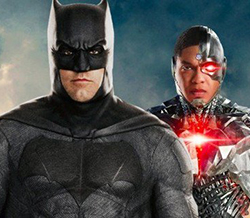 And then we have Aquaman by way of the Abercrombie shirtless collection. WWE’s Roman Reigns, err, Jason Momoa exists as multiverse variant of Arthur Curry so devoid of the traits I’d long associated with the character, I all but abandoned any known factoids of the comic book original minutes into his first scene opposite Bruce Wayne – who himself was enjoying his take on the Fall Hugo Boss collection. Their shared scene, the one you no doubt saw in the trailers and commercials, sets us up for the League’s water-based warrior. He’s a hard-drinking, hard-fighting, surfer-lone-wolf with a pitchfork and a chip on his shoulder. His origin isn’t really told so much as it is scribbled, child-like, on a bar wall, and then half-dialogue-vomited in an appropriately confusing underwater scene. Verily.
And then we have Aquaman by way of the Abercrombie shirtless collection. WWE’s Roman Reigns, err, Jason Momoa exists as multiverse variant of Arthur Curry so devoid of the traits I’d long associated with the character, I all but abandoned any known factoids of the comic book original minutes into his first scene opposite Bruce Wayne – who himself was enjoying his take on the Fall Hugo Boss collection. Their shared scene, the one you no doubt saw in the trailers and commercials, sets us up for the League’s water-based warrior. He’s a hard-drinking, hard-fighting, surfer-lone-wolf with a pitchfork and a chip on his shoulder. His origin isn’t really told so much as it is scribbled, child-like, on a bar wall, and then half-dialogue-vomited in an appropriately confusing underwater scene. Verily.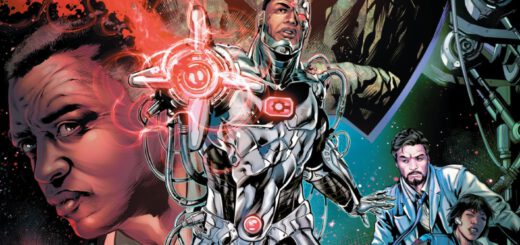
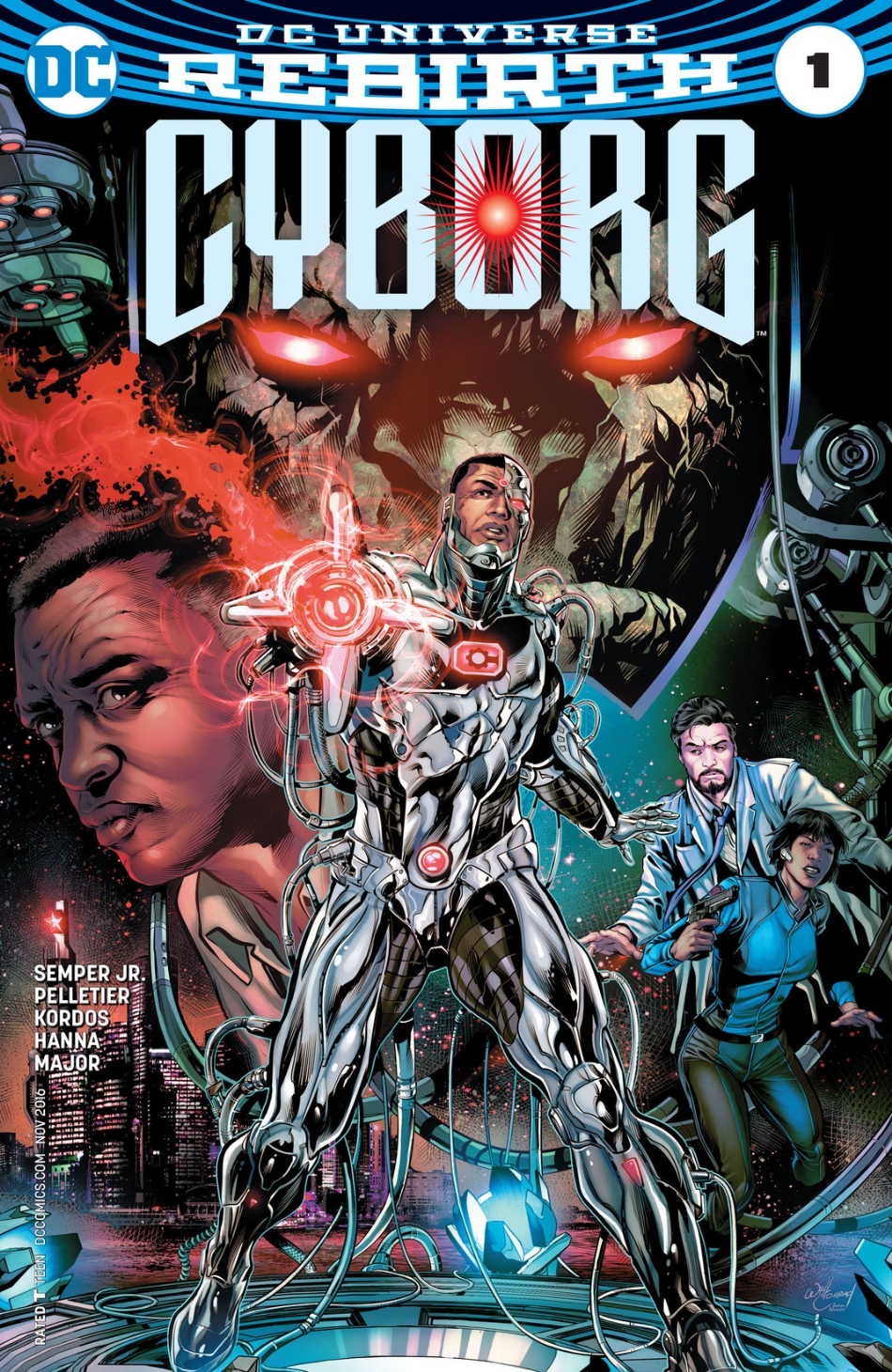 I have a mutant power. (One mutant power; don’t believe any lies
I have a mutant power. (One mutant power; don’t believe any lies 